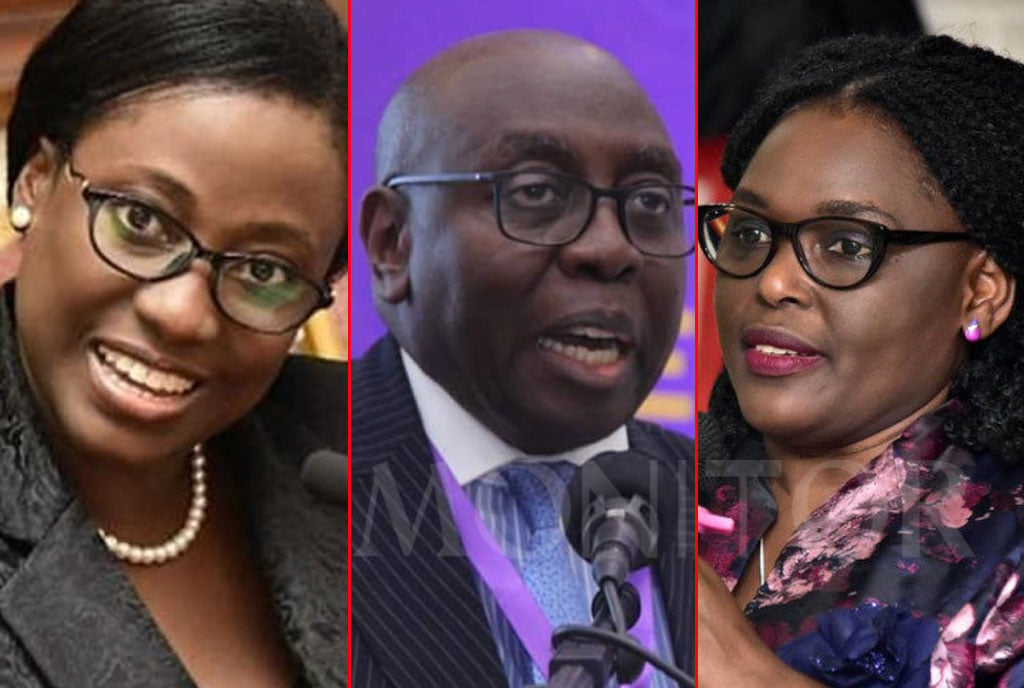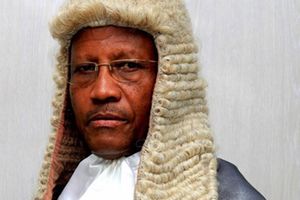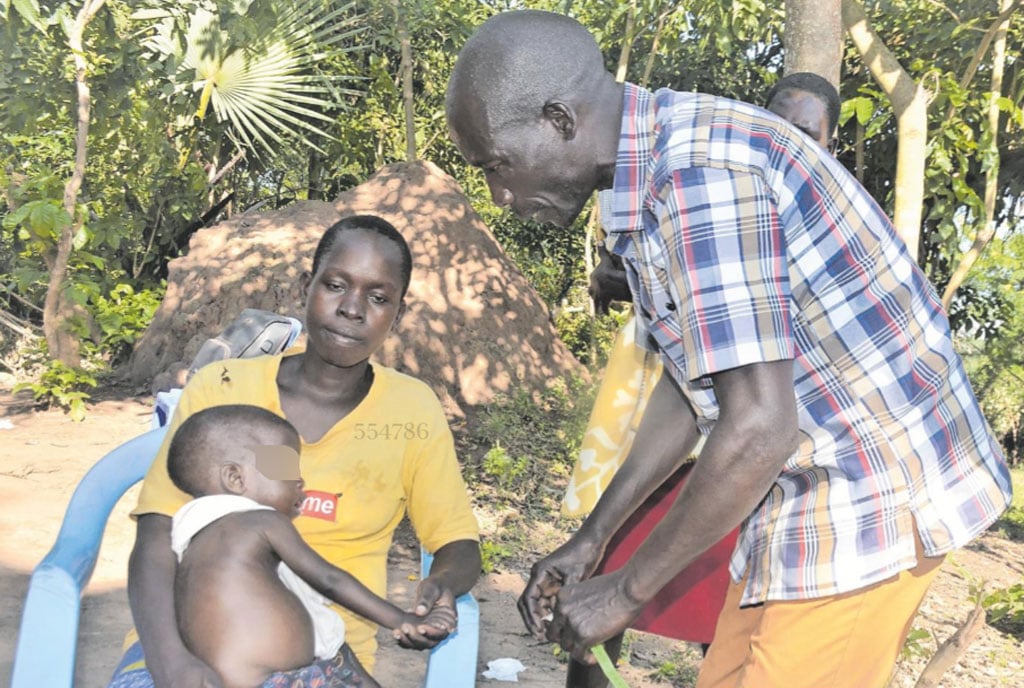
L-R: Justices Monica Mugenyi (Supreme Court), Geoffrey Kiryabwire (Court of Appeal) and Catherine Bamugemereire (Supreme Court). PHOTO/COMBO
The position of deputy Chief Justice (DCJ) was advertised last week by the Judicial Service Commission (JSC), meaning Justice Richard Buteera will hung up his wig once he clocks 70 years in April next year. Our reporter, Derrick Kiyonga, offers a sneak peek into the qualities of prospective judicial candidates that may be tapped to replace Justice Buteera.
Article 143 (1b) of the Constitution stipulates that a person shall be qualified for appointment as Deputy Chief Justice or Principal Judge if he or she has served as a justice of the Supreme Court, Court of Appeal, High Court or a court of similar jurisdiction. The alternative is that such a person has practised as an advocate for less than 15 years before a court with unlimited jurisdiction in civil and criminal matters.
In principle, the Deputy Chief Justice heads the Constitutional Court. Here are some of the justices who might try their luck to replace Justice Buteera.
If the notion of gender equality is to return, then Justice Catherine Bamugemereire would fancy her chances. Justice Bamugemereire, 54, came into the limelight as an anti-corruption crusader for the years she spent at the Anti-Corruption Court. In 2012, Justice Bamugemereire sentenced socialite Shanita Namuyimbwa, popularly known as Bad Black, to four years in prison for stealing $9 million from Deveshan Development Company Limited, an entity she had established with lover David Greenhalgh.

Mr David Greenhalgh and city socialite Shanita Namuyimbwa, aka Bad Black, arrive at the Anti-Corruption Court in Kampala in 2012.
As a shareholder, Namuyimbwa had a 25 percent stake in the company whilst Greenhalgh retained 75 percent. It was envisaged that the company would first engage in real estate before diversifying but after a few years, there was nothing to show off, with Namuyimbwa being its focal person in Uganda since Greenhalgh was most of the time out of the country.
Namuyimbwa‘s defence was that she was entitled to spend as she wished on account of being the lover of Greenhalgh but Justice Bamugemereire rejected this, insisting that she wasn’t married to Greenhalgh, and consequently, she couldn’t say that she was entitled to the money.
Justice Bamugemereire sentenced John Kashaka, the former permanent secretary in the Ministry of Local Government, to 10 years in prison for having a hand in the Shs4.2 billion bicycle procurement scandal. She also gave 10 years of imprisonment to Henry Bamutura, the former principal accountant to the Ministry of Local Government.
However, President Museveni recently triggered the constitutional prerogative of mercy and pardoned both Kashaka and Bamutura (posthumously). The President had spotted Justice Bamugemereire and started appointing her to lead commissions of inquiry a move that many say blemished her rather impressive curriculum vitae. Her 2013 appointment to lead a commission that investigated Kampala Lord Mayor Erias Lukwago for alleged indiscipline and abuse of office got her embroiled in the murky politics of Uganda and her findings were never implemented after he dashed to the High Court and challenged them.
In 2015, Mr Museveni again appointed Justice Bamugemereire to lead a commission of inquiry into the alleged mismanagement, abuse of office, and corruption in the Uganda National Roads Authority (Unra). Again, many of Justice Bamugemereire’s findings couldn’t be implemented as the aggrieved parties filed suit after suit in the High Court.

President Museveni leaves the High Court in Kampala after officially opening the New Law Year 2022. PHOTO/FILE
In 2017, the President appointed Justice Bamugemereire to lead a seven-member committee that would investigate land issues countrywide. However, the Constitutional Court where Justice Bamugemereire was a member, quashed her land report on grounds that it had hijacked the court’s powers.
Early this year, Justice Bamugemereire was appointed by the President to the Supreme Court, the highest court in the land. However, if she wins the Deputy Chief Justice race, then she will have to go back to the Court of Appeal where she was stationed for eight years.
With Justice Buteera retiring, Justice Kiryabwire, who arrived at the Court of Appeal from the High Court’s Commercial Division in 2013, will be the most senior judge of the former. This would increase his chances of becoming Justice Buteera’s successor if he decides to throw in his hat in this race.

President Museveni (in white) interacts with Judiciary Permanent Secretary Pius Bigirimana (left), Principal Judge Flavian Zeija (2nd left), Chief Justice Alfonse Owiny-Dollo (3rd left), Deputy Chief Justice Richard Buteera (2nd right) and Chief Registrar Sarah Langa during the commissioning of the twin tower buildings which will house the Court of Appeal and Supreme Court in Kampala on April 18, 2024. Photo/Abubaker Lubowa
Currently, Justice Kiryabwire, 62, is the administrator of the Court of Appeal. He was appointed to the court 11 years ago. He was part of the panel that determined the constitutionality of trying civilians in military courts. ''
In the petition of Amon Byarugaba and 100 others, Justice Kiryabwire together with Justice Elizabeth Musoke and Justice Kenneth Kakuru ruled that the trial of civilians in the court martial is unconstitutional.
Justice Kiryabwire enrolled as an advocate of the High Court of Uganda in 1987 and holds a Master of Laws (International Economic Law) from the University of London. He has been a member of three commissions of inquiry into the mismanagement of criminal cases, the collapse of three commercial banks and the junk helicopter purchase. He joined the bench in early 2000. As a jurist, Justice Kiryabwire professes to have a lot of interest in what he terms “evolving mechanisms to access justice for all manner of peoples.”
Consequently, he says that he is involved in the development of Alternate Dispute Resolution in Uganda. In 2015, he was appointed as a mediator at the INSOL International College of Mediation based in England. He is the only African mediator on the 14-man panel of mediators from different countries.
Justice Kiryabwire also takes pride in having developed a 2004 concept paper, which was about the introduction of small claims/fast track procedure that he says led to the introduction of the small claims court in 2007. Justice Kiryabwire is currently the chairperson of the Judiciary ‘s Small Claims Procedure (SCP) Implementation Committee.
Justice Monica Mugenyi, just like Justice Bamugemereire, is one of the recent appointees to the Supreme Court. Justice Mugenyi previously served at the Court of Appeal since 2019. She wrote in a lead judgment that held that the move of appointing judges in acting capacity was unconstitutional saying that serving and retired justices can serve in acting roles. However, she went on to disappoint the petitioners – Dr Kabumba Busingye and Andrew Karamagi - when she refused to confirm the appointment of people who had been appointed as “ acting” judges, saying roles reside with the Judicial Service Commission.
Still, at the Court of Appeal, it was justices Mugenyi and Buteera who dissented in the case, ruling that it was legal for civilians to be tried in military courts. At the regional court, Mugenyi led a panel that included justices Charles Nyawello (South Sudan) and Charles Nyachae (Kenya) in dismissing a petition filed by maverick lawyer Male Mabirizi, challenging the editing of presidential age limits from Uganda’s Constitution.
Though the Supreme Court, Uganda’s highest court, had ruled that it wasn’t unconstitutional, Mabirizi had taken the fight to the regional court.Before going to the regional court, Justice Mugenyi had been a High Court judge and in 2012, she was assigned to determine if Lydia Atim Draru was culpable of murdering former Chief of Defence Forces James Kazini in November 2009. In the end, she gave Draru 14 years in prison. It remains to be seen if Justice Mugenyi, 55, will apply for the job. DM crosshead: Justice Irene Mulyagonja
In her last years as government ombudsman, Justice Irene Mulyagonja claimed that corrupt government officials were “hiding behind” President Museveni and they used their connections to the State House to defeat justice. The feeling of mistrust was mutual as Mr Museveni had gone ahead to bypass the IGG by instituting the State House Anti-Corruption Unit in 2018 under the leadership of his former personal assistant, Col Edith Nakalema. In 2019, Justice Mulyangonja decided to go back to the Judiciary where she had previously served as a High Court Judge.

Court of Appeal justice Irene Mulyagonja. PHOTO/FILE
She was promoted to the Court of Appeal. In one of her rulings, Justice Mulyagonja refused to nullify Section 24 of the Computer Misuse Act, which introduces the charge of cyber harassment. Also, in 2023, Justice Mulyagonja, 61, okayed secretive vetting of public officials in Parliament when she refused to nullify Rule 53 (2) of the Procedure of Parliament 2012, which states that the proceedings of the Appointments Committee of Parliament shall be closed.
Background
There was a time when President Museveni would appoint one of the senior judges, either at the Court of Appeal, which doubles as the Constitutional Court, or appoint one judge from the Supreme Court.
For instance, in 2002, when Deputy Chief Justice Seth Manyindo retired, he was replaced by Justice Laeticia Mukasa Kikonyogo, the most senior at the Court of Appeal. In 2010, Justice Alice Mpagi Bahigeine, who was the most senior at the court, replaced Kikonyogo.
When Bahigeine retired in 2012, she was replaced by the late Justice Constance Byamugisha – the most senior at the time at the Constitutional Court – who served in acting capacity. In principle, the Deputy Chief Justice heads the Constitutional Court. Byamugisha’s tenure didn’t last long; she passed away in 2013 and was replaced by Justice Steven Kavuma, again the most senior judge at the court at the time.
Justice Kavuma first served in acting capacity, before he was substantively appointed in 2015. The appointment of Kavuma as the substantive Deputy Chief Justice effectively ended the notion of gender balance in which a man would take the position of Chief Justice and a woman deputised him.
Justice Kavuma was replaced by Alfonse Owiny- Dollo who was in 2020 appointed as Chief Justice and he was at the same time replaced by Buteera as Deputy Chief Justice.








